Nordic companies and their globalisation success
Despite coming from a very small region of the world, Nordic companies lead the way when it comes to innovation and successful international expansion. Scroll down to read more about how the Nordic region has become an ideal environment for businesses to grow and become top players on the global stage.

Small populations mean global expansion is inevitable
Since the Nordic countries are only home to about 28 million people, successful companies in this region who are hoping to go global quickly reach a point where the only growth opportunities left are abroad. This leads them to expand internationally with more urgency than companies starting out in larger markets.
Also, because Nordic companies often expand to neighbouring countries first, they gain some internationalisation experience, leaving them more prepared to scale up. Companies in larger markets may not be ready to expand abroad as quickly.
Nordic people know the importance of language localisation
It’s no secret that the Nordic languages are not the most widely spoken in the world when compared to languages like English or Spanish.
However, Nordic people take great pride in their native languages, and like others, tend to feel more comfortable interacting with content in their mother tongue.
In fact, 8 out of 10 Nordic consumers prefer a website to use their own language rather than English.
This gives them a personal understanding of how frustrating it can be for companies not to localise their content simply because the audience speaks a smaller language, especially when it comes to complex or essential products.
No matter the market, whether big or small, most Nordic companies understand that localisation is important to consumers all over the world. This gives them an advantage over competitors who may not prioritise localisation to the same degree.
Spotify: How understanding local markets leads to international success
Spotify has shown the world how using a music streaming service can become a personalised experience, thanks to time and effort put into understanding user expectations. Spotify’s globalisation journey has included everything from translating linguistic content to adapting playlists and localising images.
Tech innovation thrives in the Nordics
Nordic people are very active users of the Internet and other tech products, with the highest Internet penetration (97%) and smartphone penetration (96%) in Europe (Nordic Embassy). This appreciation for technology also translates into the business world, as many successful Nordic companies are tech companies.
In terms of globalisation, tech companies are the most scalable and easy to grow internationally, as the digital nature of their product means that they can quickly adapt it to a new market.
The innovative and competitive Nordic tech atmosphere combined with tech’s high potential for scalability is why we see lots of tech companies from this region successfully making an impact in foreign markets.
Nordic governments prioritise investment and innovation
The Nordic countries consist of small, open economies that are heavily reliant on international trade, or the import and export of goods and services.
This means that the governments have a stake in the quality of entrepreneurship in their countries, as it affects their GDP and overall economic status. Through their policies, they prioritise innovation and the development of new services to send into the global market.
For example, government or state-owned agencies like Business Finland and Innovation Norway provide public funding to innovative businesses and attract funding from abroad.
Some Nordic governments also offer financial incentives, like income deductions, to encourage businesspeople to invest in start-ups.
Not only does this encourage initial investment in new ideas and businesses, but it also creates a cycle of innovation. Founders and leaders of successful Nordic companies like Spotify or Skype have since returned to their home markets and funded new start-ups to continue to grow the Nordic business market.
IKEA: How Swedish home-furnishing conquered the global market
Over many years, IKEA expanded into markets all over the world, becoming a brand that everyone associates with flatpack minimalist Scandinavian furniture. However, there were several hurdles along the way, including an unsuccessful expansion into the Japanese market.
Strong social welfare institutions provide a safety net
A well-known characteristic of the Nordic countries is their development of strong welfare systems. These give people a social safety net of support, including access to public services like free education and universal healthcare.
Expanding globally is a big investment for a company, as it requires adapting an entire product and its accompanying legal and marketing materials to a new audience. Globalisation always involves some degree of risk and there is never a perfect promise of success.
By providing a safety net for people to fall back on, the Nordic countries encourage entrepreneurs to take the risk when it comes to globalisation. The Nordic welfare model gives people from all backgrounds the same access to this safety net, making the business and start-up culture even more innovative.
Flat hierarchies and open communication inspire entrepreneurship
Culturally, while the Nordic countries are certainly different, they share a few important business-related traits.
Companies typically have a flat hierarchy, meaning contributions from everyone are welcome, regardless of their status in the company. The communication style is also very open and direct, without fear of retribution for sharing an honest opinion.
This culture leaves room for creativity and new ideas, creating an environment conducive to entrepreneurship. The open sharing of ideas and thoughts generates more well-rounded business strategies and solutions that account for a variety of possibilities and perspectives.
LEGO: How the legendary toy brand has overcome globalisation challenges over its 90-year history
From experiencing several devastating factory fires in the 20th century to approaching bankruptcy in 2004, constant adaptation to new challenges has been the common element in top toy brand LEGO’s history. The company has learned how to connect best with its customers through a balanced approach of standardisation and localisation.
Which Nordic companies have become well-known international brands?
Do you recognise any of the following logos? These are several of the most profitable and popular companies that originated in the Nordic region.

(SWEDEN)

(DENMARK)

(DENMARK)
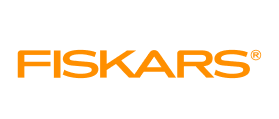
(FINLAND)
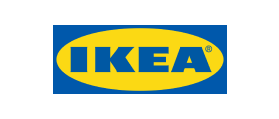
(SWEDEN)

(DENMARK)

(FINLAND)

(SWEDEN)
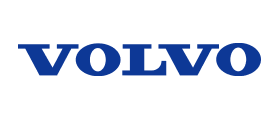
(SWEDEN)

(SWEDEN)
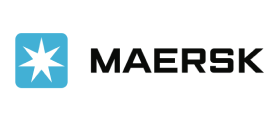
(DENMARK)
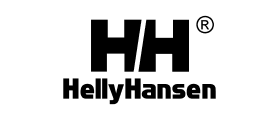
(NORWAY)
Thinking of taking your Nordic brand global?
Get in touch and we’ll work with you to make your ambition a reality.